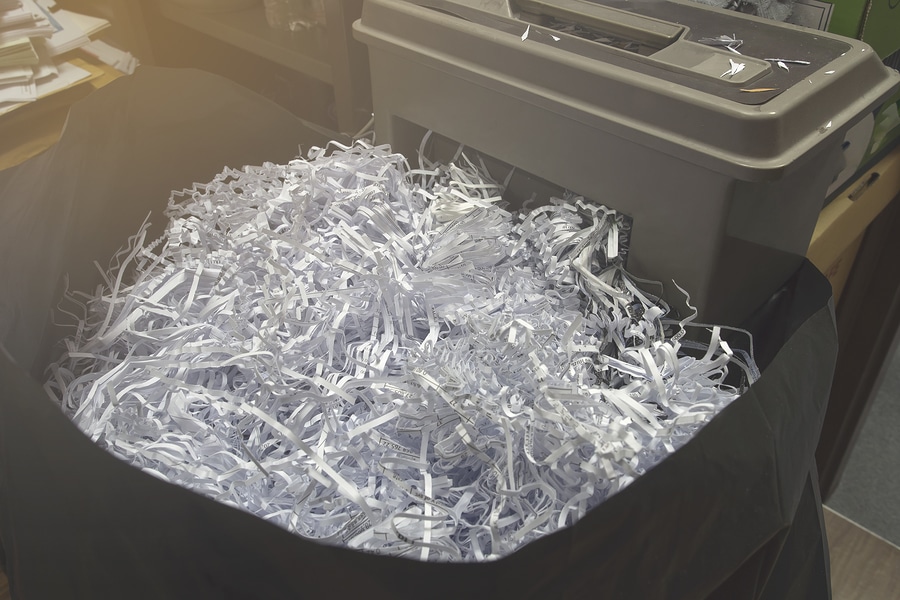The Most Common Complications of In-House Document Shredding

As a responsible business owner, you’re always looking for ways to save money without compromising quality or productivity. This could mean comparison shopping for internet and mobile services, buying office supplies in bulk, or booking VIP travelers in business class instead of first class seating, for example.
You might also determine that it’s cheaper to bring certain activities in-house instead of outsourcing and paying a third-party vendor. When it comes to document shredding, you might see significant savings on the surface by going this route.
Unfortunately, there’s a lot more to it than simply feeding paper into your average personal shredder whenever you have a few minutes free. Here are a few potential complications every North Dakota business should be aware of before deciding that in-house shredding is preferable to hiring professional help.
Legal Compliance
The first thing you need to consider is the potential legal ramifications of shredding in-house. From a legal perspective, you must comply with applicable federal, state, and local privacy laws concerning the protection of consumer data, not to mention additional standards spelled out in HIPAA, FACTA, and so on, depending on your industry.
There are rules and regulations that govern the type of shredder you must use and even how small the paper shreds must be. Keeping track of these strict standards and implementing them in the office setting could end up being significantly more complex and expensive than you imagine.
Confusion Over What to Shred
You probably have policies in place to govern which types of information need to be shredded. You may even train your employees to understand and follow these rules. However, by separating certain types of information from others, you risk increasing confusion, not to mention the potential for errors to occur. Adopting a shred-all policy is a great way to clear up confusion, but there could still be misunderstandings about when to shred, where to store documents slated for destruction, and more when you choose to shred in-house.
Open Storage Bins
This is a major problem for any business concerned with data security. If you’re going to take the time and trouble to compartmentalize digital data so that only approved personnel can access it, why on earth would you allow hard copies to sit in an open bin prior to shredding, where any sticky-fingered employee could lay hands on them? With the right IT asset disposition (ITAD) partner, you’ll get secure, locking bins for use on-site, so employees simply toss in documents for destruction, without the worry that someone else might snatch them.
Wasted Time and Money
Tasking high-paid employees with shredding documents is a major waste of productivity, so don’t forget to factor that into expenses when determining how much in-house shredding actually costs you. Keep in mind, you’ll also have to purchase and maintain equipment. Third-party shredding has a price tag, but you gain a lot of convenience and minimize other costs in the process.
Considering what you could save on the cost of a potential data breach (anywhere from thousands to millions in penalties, lost revenue, and more), you stand to come out ahead when you forego in-house shredding in favor of partnering with a certified ITAD service provider.
If you need reliable data destruction services for your North Dakota business, contact the qualified professionals at SEAM today at 605-274-7326 (SEAM) or online to request a quote.
SEAM provides IT recycling and data destruction services including onsite shredding and hard drive wiping to South Dakota, North Dakota, Minnesota, Iowa, and Nebraska.
Schedule a pickup or contact us for more information.





